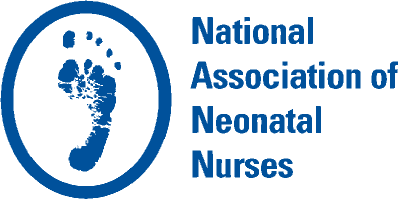Feature
The Dedicated Preceptor
Jennifer Shelton-Hong, MSN RN NNP-BC
Neonatal nurse practitioners (NNPs) are vital to the functioning of neonatal intensive care units (NICUs) of all levels. Because the role is evolving to encompass a widening variety of functions, managing the clinical training of NNP students has become more complex and difficult to integrate into the daily workflow of practicing NNP preceptors. At Pediatrix Medical Group–San Antonio (PDXSA), we noticed a trend of NNPs completing training with fewer clinical bedside hours and thus not enough experience. Therefore, training them took more time and effort because they struggled more with their confidence, decision making, and critical thinking after completing orientation. As a solution to this issue, the NNP team at PDXSA launched the Dedicated Preceptor Program in 2014. Since then, the dedicated preceptor (DP) role has become a vital part of training NNP students and orientees. The role of the DP is to help NNP students and orientees develop proficiency and independence, with the ultimate goal of improving patient care, enhancing recruitment efforts, and improving job satisfaction.
DPs are removed from our staffing model and are not responsible for the daily work of the NICU. Instead, they are responsible for a group of first- and second-year NNP students and an orientee, which creates a great environment for learning. DPs meet with the students and orientees in the morning to plan the day. They pair students and orientees with the babies they are scheduled to see, check what procedures may be available for the day, and monitor pending deliveries that may occur. After patient assignments have been determined, DPs assist students with gathering data and pertinent information. They also have structured lessons and a library of canned notes to pull from.
There is an established process and criteria to become a DP. The ideal candidate is an NNP with some years of experience who can focus on teaching while removing the stress of multitasking in a busy NICU. At PDXSA, the minimum criteria is 2 years of employment within our practice beyond orientation and to be in good standing. The selection process includes a completed questionnaire and an interview, which then are presented to our NNP and MD executive committees for approval. After approval, we provide DP training to assist with team building and adult learning.
One of the DP’s main responsibilities to NNP students and orientees is to help them focus and pair their clinical experiences with their didactic workload. Since NNP students come from different universities and have differing needs, each DP receives their students’ objectives and curricula prior to the start of the semester. This enables DPs to provide customized training focused on patient care, efficiency, and critical thinking. DPs also deliver feedback to their program directors at the end of each semester.
The orientation for students and new NNPs is 4 months long and their progress is followed by their DPs throughout this period. We highly encourage orientees to be paired with their DP for a minimum of 2 of the 4 months. DPs assist their students with the daily management of highly acute infants, making rounds with the neonatologist, entering orders, writing daily admit orders, taking transition and discharge notes, writing total parenteral nutrition and intralipid therapy reports, undergoing various procedures, updating families, and being present in the delivery room. They also provide feedback to their students and orientees at the end of each month to gauge their progress and to focus on areas of improvement. Generally, students and orientees show noticeable improvement in efficiency, critical thinking, and confidence during this period.
The DP role has proven to be beneficial. The progress of NNP students can be tracked through a pre- and post-test, with the majority of post-test scores showing improvement. Of note, all NNP students at PDXSA have passed their National Certification Corporation exam on their first attempt. This program also has assisted with recruitment efforts as many of our NNP students are hired after graduation. The word has spread and the number of student applicants has grown substantially, causing us to implement a new application process for NNP students because there were too many applicants and the demand could not be fulfilled. Limiting the number of students ensures the DP has adequate teaching opportunities for those involved.
Being a DP is a rewarding job. DPs educate future NNPs, molding them into excellent providers with a sense of confidence not previously seen. They take great pride in training new NNPs, develop strong relationships and bonds with their students and orientees, and earn a great deal of respect from their colleagues. Working with NNP students enables DPs to identify those who would be a good fit for the practice, making the program a useful recruitment tool to help students transition into proficient NNPs.
References
Staebler, S., & Bissinger, R. (2017). 2016 Neonatal Nurse Practitioner Workforce Survey: Report of findings. Advances in Neonatal Care, 17(5): 331–336.
National Association of Neonatal Nurse Practitioners (2012). Neonatal Nurse Practitioner Workforce (Position Statement #3058). Chicago, IL. National Association of Neonatal Nurses.
Jnah, A. (2016). The Value of the NNP Preceptor. Retrieved from ensearch.com.

